
androidlad
Members-
Posts
1,215 -
Joined
-
Last visited
Content Type
Profiles
Forums
Articles
Everything posted by androidlad
-
@BrunoCH New firmware for CM-55C released. Copy these two files to the root directory in a FAT32 formatted SD card, turn on unit and follow instructions. JTH5501_UN108v01.bin JTH5500_UN108v01.bin
-
-
No, the lithography node (300nm, 90nm) refers to ADC circuitry, it has nothing to do with the photodiode and does not affect photosensitive area no matter how big or small the number is. It's the reason why Sony has achieved 16bit ADC on recent generation sensors. The datasheet actually tells you how much DR it has. Using the formula 20/6 x Log10(FWC/RMS) We can calculate that at ISO100 it has a pixel-level EDR of 12EV.
-
For a 36x24mm FF sensor, 300nm vs 90nm process really make very little if any difference to image quality. There are more important contributors. CMOS sensors are not CPU, there's no constant need to shrink the die.
-
This 63MP FF sensor from Canon (35MM63MXSCD, FSI with 300nm process) is a response to Sony's 61MP IMX455 (BSI & DTI with 90nm process), which recently entered mass production and will be sold to Nikon and Pentax.
-
Sony Semicon develops 100MP FF sensor with 6K video
androidlad replied to androidlad's topic in Cameras
-
DJI Mavic 2 Zoom: D-Cinelike profile -> GH5 Cine-D PRE -> GHa Daylight Linear -> Contrast adjustments
-
Crane 2 has its own focus motor, while Crane 3 Lab/Weebill Lab have their own motors for both focus and zoom, at the same time.
-
Zhiyun Weebill Lab/Crane 3 Lab support it, by providing two motors for zoom and focus control.
-
Tilta is showing a cage designed for X-T3 (the one on the right).
-
Z-CAM quietly announce 8k and 6k FULL FRAME cameras - no joke!
androidlad replied to Oliver Daniel's topic in Cameras
-
It's the same "Movie Digital IS" on EOS R. The Japanese text says: "When shooting movie, the built-in gyro sensor provides 5-axis image stabilisation with a compatible lens."
-
I've seen a couple complaints regarding F-log banding/blocking on DPReview forum. Most people don't care though, not everybody is an image quality purist. Doesn't look like a hardware problem so bad copy is very unlikely.
-
Yes this issue was discussed extensively on this forum, see my post comparing F-log and HLG. There's something wrong with Fuji's F-log implementation, could be flaws in the encoding parameter. The solution is to shoot HLG instead, it's completely clean and in my opinion also offers better colourimetry than F-Gamut. Please report this issue to Fujifilm by sending these photos along with a description http://www.fujifilm.com/contact/ We have to get Fujifilm's attention for a possible fix.
-
Observation from preliminary testing GHa on X-T3: With F-log, even at 10bit 400Mbps, applying two LUTs (F-log to V-log then GHa linear) produces noticeable banding in the footage. The F-log banding issue was discussed in other threads but using two LUTs really accentuate these artifacts. HLG works amazingly well, the GH5 HLG preparation LUT is a perfect match (BT.2100 HLG is a standardised colour space so shouldn't come as a surprise). Again as discussed in another thread, HLG on X-T3 removes the magenta hue. Shades of blue have that Alexa signature cyan tint.
-
https://www.lindy.co.uk/ Lindy makes some of the best cables and they are reasonably priced.
-
Z-CAM quietly announce 8k and 6k FULL FRAME cameras - no joke!
androidlad replied to Oliver Daniel's topic in Cameras
It is the A7 III/Mavo LF sensor IMX410, without PDAF mask of course. The 8K one is IMX455. -
Z-CAM quietly announce 8k and 6k FULL FRAME cameras - no joke!
androidlad replied to Oliver Daniel's topic in Cameras
They made it very clear that it's Cineform RAW, a wavelet compressed highly efficient RAW format. -
No they won't. A7S III is still primarily a stills camera, with cutting edge video features.
-
https://lilliputdirect.com/lilliput-4k-ultra-hd-monitors?product_id=781
-
Z-CAM quietly announce 8k and 6k FULL FRAME cameras - no joke!
androidlad replied to Oliver Daniel's topic in Cameras
Now the firmwares for their cameras will never come out of beta... -
"Fix"? It's a nice colour contrast, I don't know what the mood of the scene or the story is, but to me it's not really a big problem. If it's too blue, just do a secondary grade and drop blue saturation.
-
Sony Semicon develops 100MP FF sensor with 6K video
androidlad replied to androidlad's topic in Cameras
Almost completely different architecture with this one being more advanced. 3.76um vs 2.91um, slim DTI, way more ADCs and they are now colour-aware (meaning significant readout noise reduction and QE boost). There are various 2x2, 3x3, 6x6 binning modes optimised for speed, quality or a compromise between the two. One of the 2x2 binning modes produces a 25MP image that even surpasses A7 III. -
Sony Semicon develops 100MP FF sensor with 6K video
androidlad replied to androidlad's topic in Cameras
Ha, this IS the demosaicing, all done on-chip at hardware level. You get super clean and sharp 4K 4:4:4 straight away.

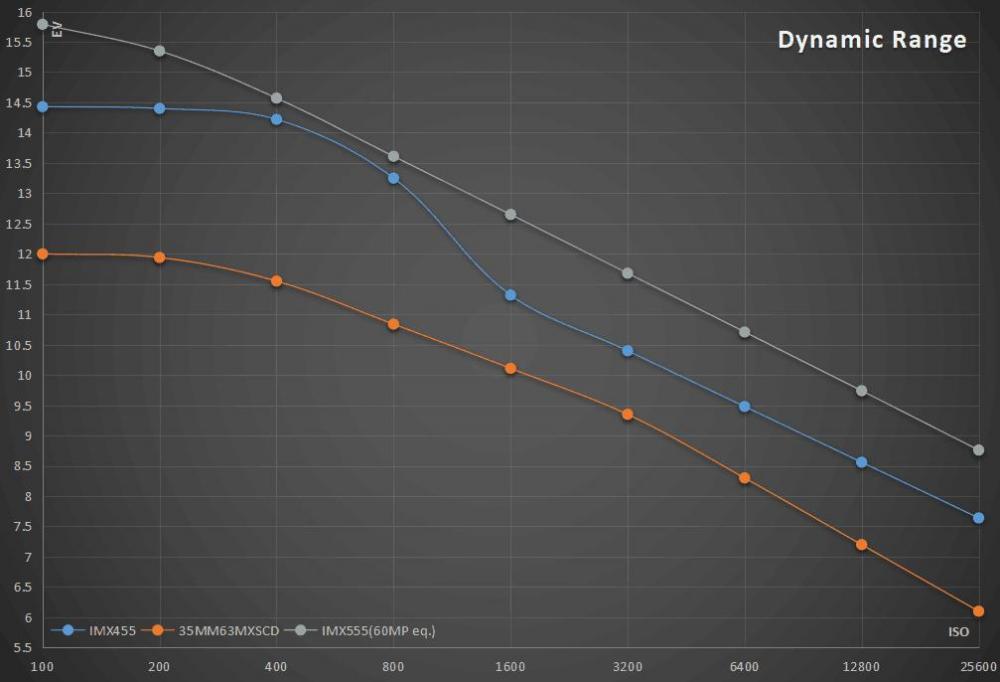
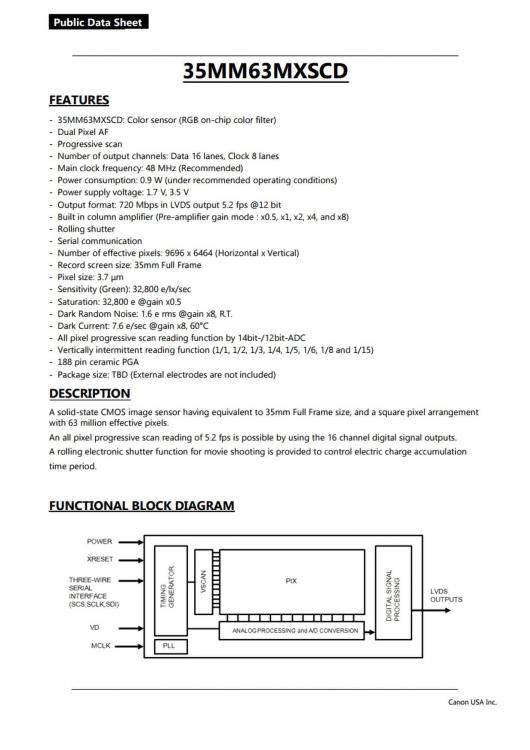
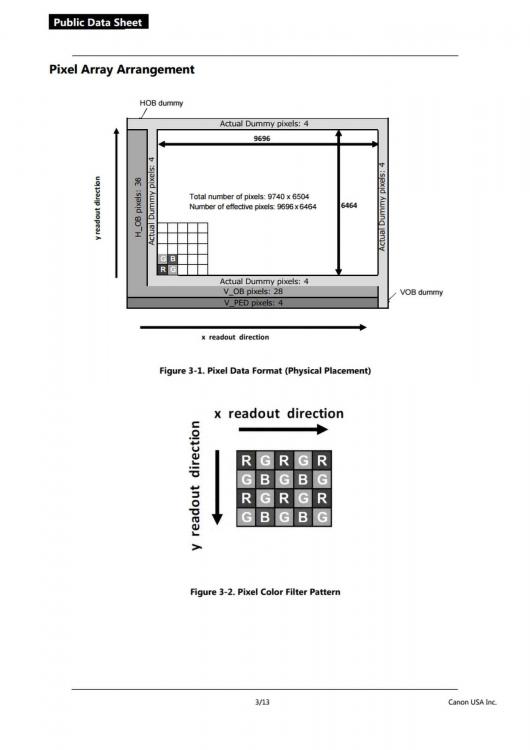
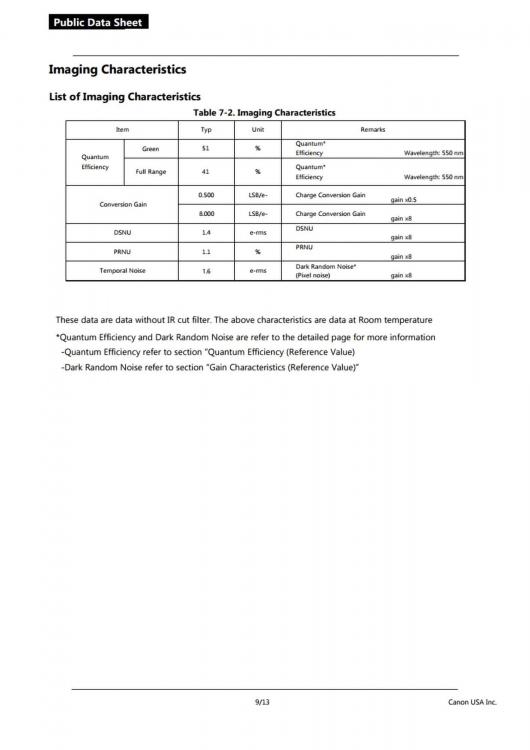
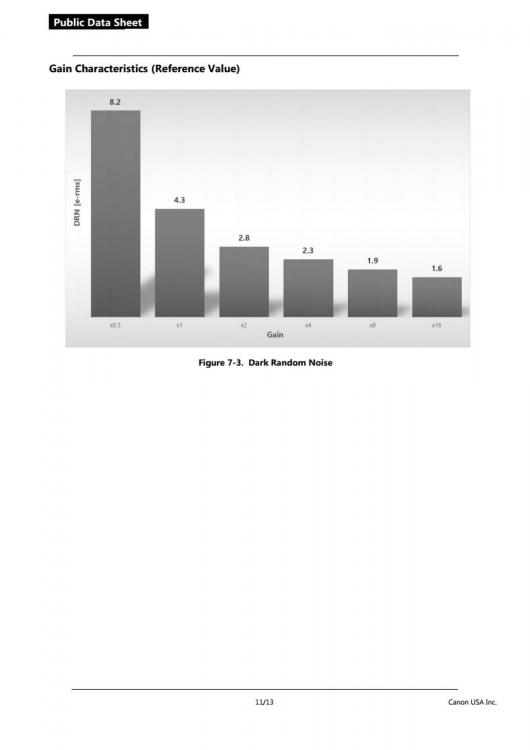
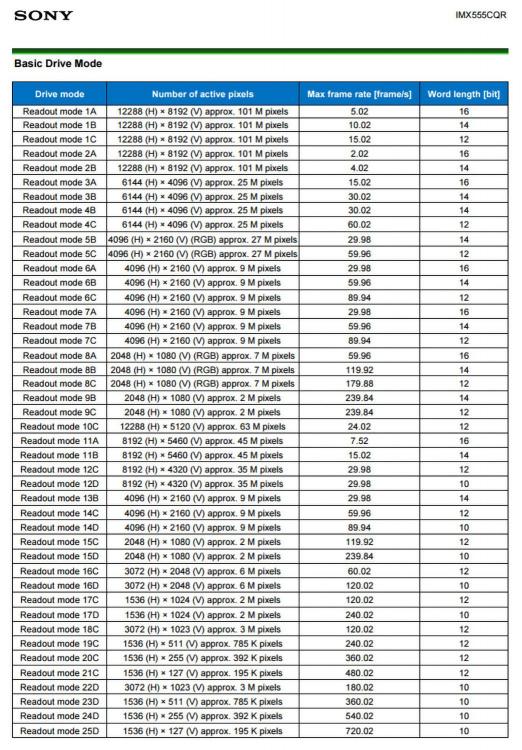
.thumb.jpg.6641462fa4be69e3554c31748f8c6413.jpg)

